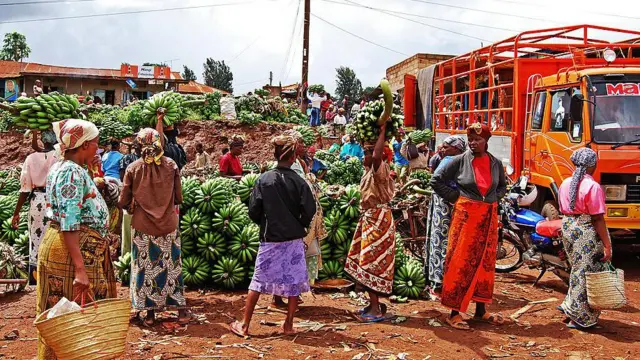Tanzania’s sudden ban on Malawian agricultural imports has snarled traffic at the Kasumulu border crossing and left small traders on both sides counting heavy losses. Since April 25, Tanzania has prohibited all farm produce from Malawi and South Africa, prompting arrests, the destruction of goods, and fears for the livelihoods of predominantly female vendors in Karonga, Malawi.
What Happened, Who’s Affected, Where, and When
On Friday, Tanzanian authorities began enforcing an immediate embargo on Malawian bananas, maize, rice, and other farm products. At the Kasumulu–Karonga crossing, dozens of lorries were turned away, their loads left to rot under the hot sun. Traders like Jestina Chanya, 29, watched as her bananas were seized and destroyed. “Our business has suffered huge losses—we have almost no money left,” she said.
Malawi had earlier blocked imports of Tanzanian flour, rice, and ginger to protect its domestic growers. South Africa maintains a long-standing prohibition on Tanzanian bananas. Diplomats have held talks, but no resolution has emerged.

Rising Regional Trade Barriers
Since the African Continental Free Trade Area was launched in 2021, governments have pledged to eliminate tariffs on intra-African trade. Yet individual disputes have proliferated. In March, Malawi announced restrictions on multiple Tanzanian staples, citing unfair competition for local producers. Tanzania responded with mirror measures on April 25, invoking protection of national business interests.
Tanzania’s Agriculture Minister, Hussein Bashe, called the Malawian and South African curbs “unfair and harmful” and justified his ban as necessary to safeguard Tanzanian farmers. Malawi’s trade ministry says it has yet to receive formal notice and is monitoring developments.
Impact on Small Traders
Losses and Desperation
At Karonga’s open-air market, female traders described watching tonnes of produce rot after being denied entry to Tanzania. “I can’t buy new stock or feed my children,” said June Mwamwaja, tears in her eyes. Many have mortgaged assets to finance cross-border trade, and now face debts with no revenue.
Tanzanian counterparts have also been hit. A video posted by Minister Bashe showed a truckload of bananas decaying on the Tanzanian side of the border with Malawi. Recent spoilage of tomatoes and other perishables illustrates the mutual damage.

Unequal Enforcement
Traders complain that enforcement targets small-scale vendors, while wealthier operators continue to move goods through unofficial channels. “They stop us with three or four bunches of bananas, but big trucks slip through,” said Evelina Mwakijungu, who now sells in secret to avoid seizure.
Market Dynamics and Consumer Preferences
Malawian sellers favour Tanzanian produce for its larger size, lower cost, and perceived quality, especially plantains and potatoes. “Our customers want Tanzanian goods; Malawian bananas are too spongy,” said Jeniffa Mshani. With local products priced higher, small traders lack the capital to compete, deepening their vulnerability when borders close.
Diplomatic and Economic Stakes
Malawi relies on Tanzanian ports for exports of tobacco, sugar, and soybeans. Rerouting these goods through Mozambique or South Africa would add time and cost, undermining national revenues. Tanzania, for its part, risks retaliation from other neighbours and damage to its reputation as a trade hub.
Twelve lorries typically cross Kasumulu daily; now the post is eerily quiet, drivers loitering under trees or playing draughts while awaiting instructions.
What’s Next
Both governments say talks continue. Observers urge a swift agreement to restore trade flows and prevent humanitarian fallout among border communities. They also call for adherence to the African Continental Free Trade Area’s dispute-resolution mechanisms to avoid ad hoc tit-for-tat bans.
Meanwhile, small traders are exploring informal channels and reduced shipments to eke out a living, but most fear that without a political settlement, their businesses may collapse.
For more business News, check PGN Business Insider.










